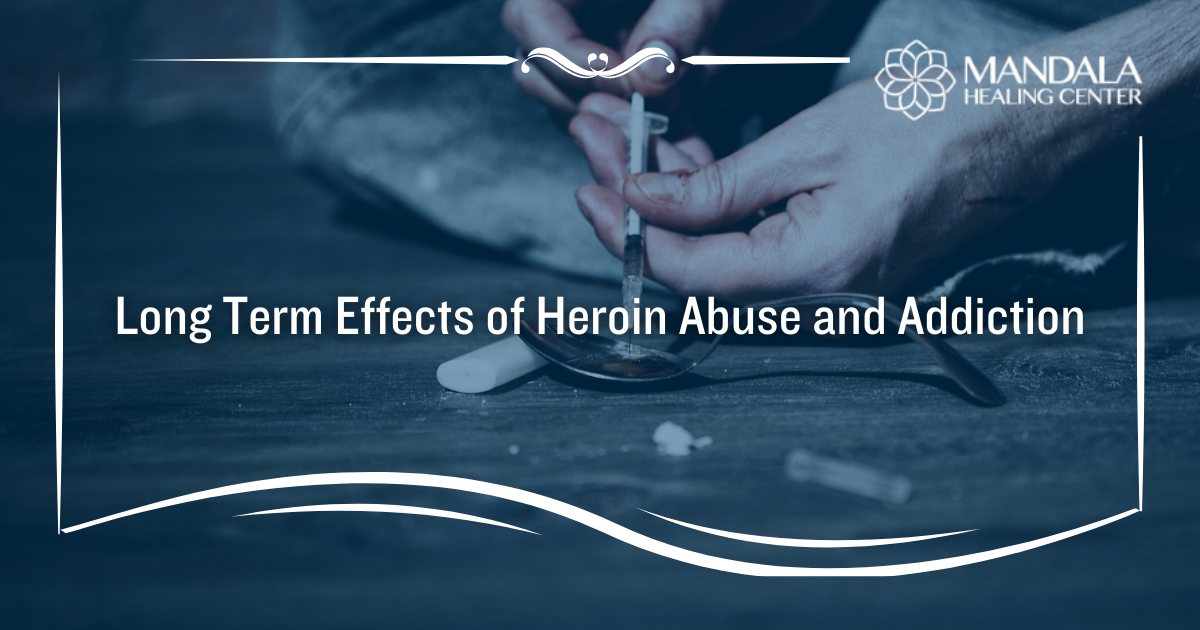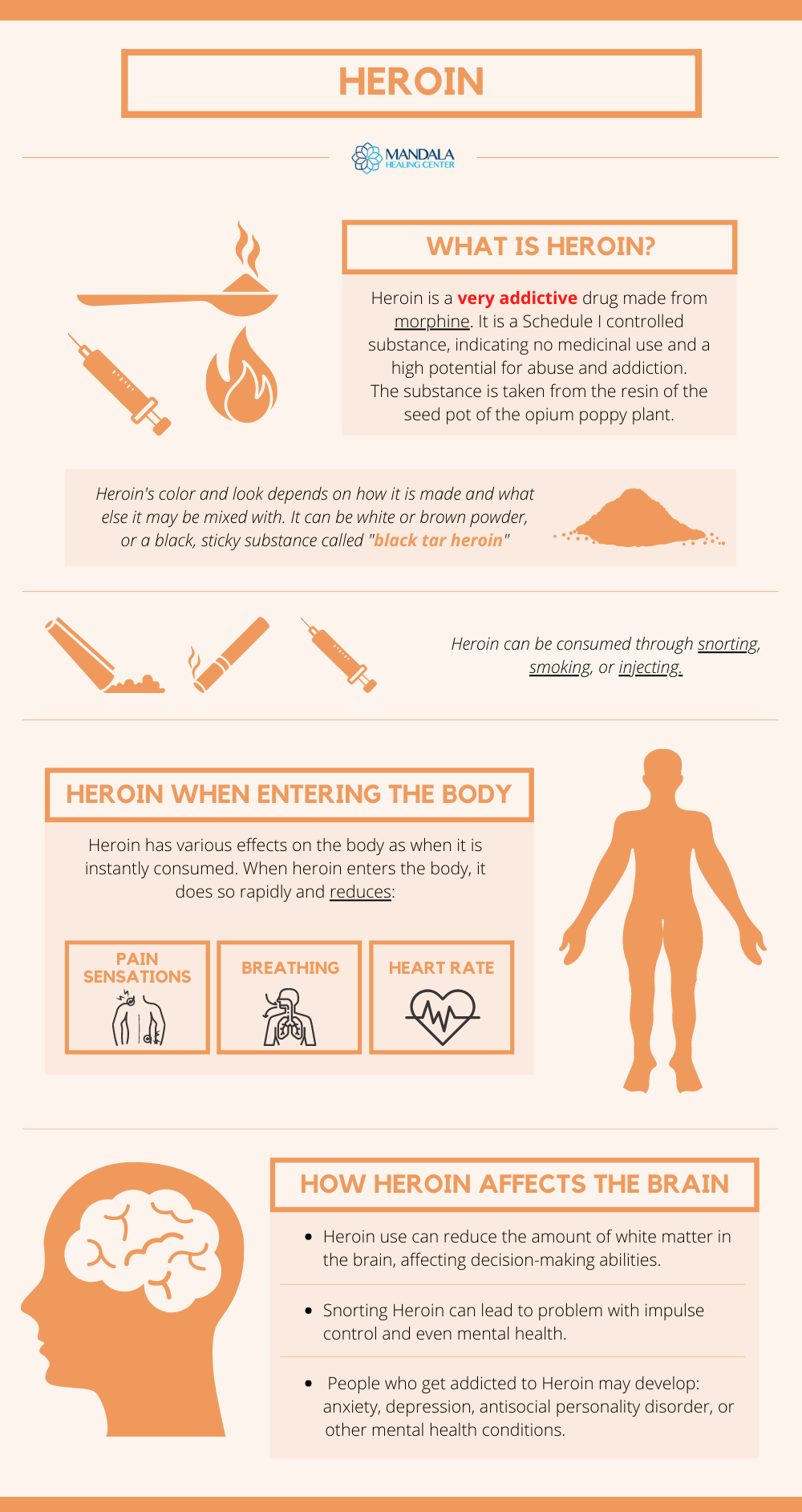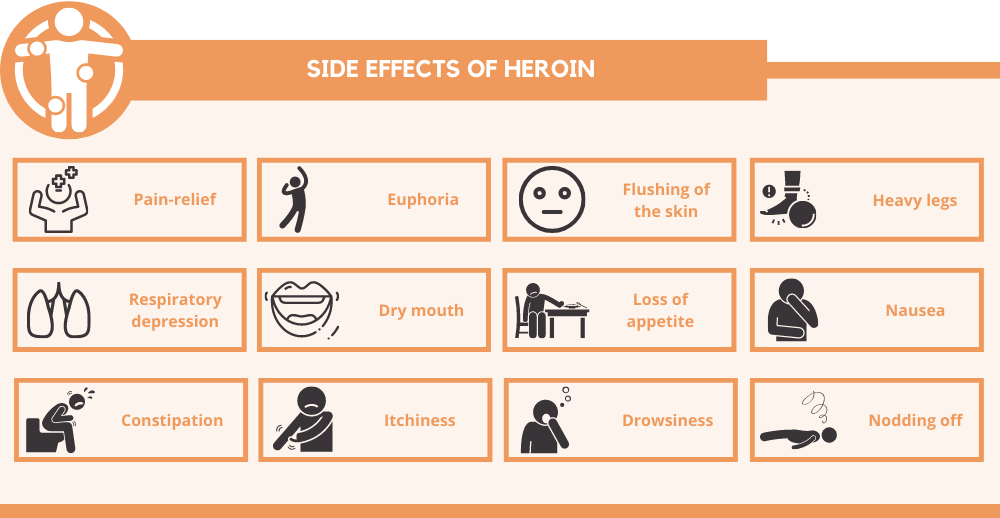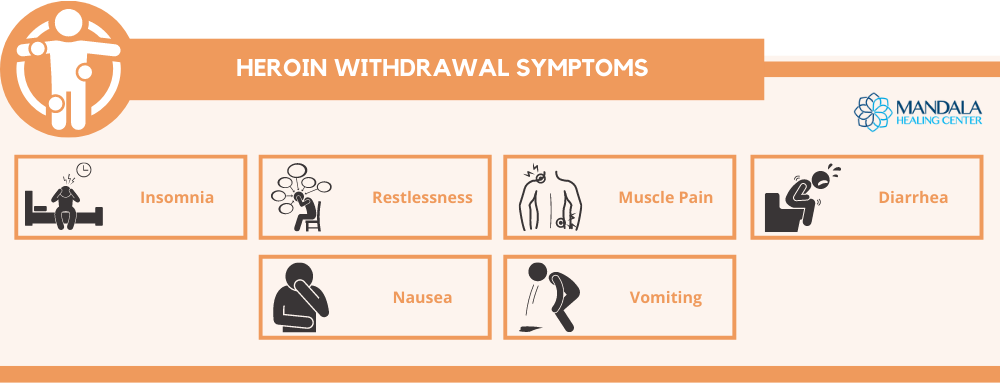Heroin is a semi-synthetic opiate drug that is derived from the opium poppy plant. Although it was once used as a prescription painkiller, the drug was pulled off the shelves in the early 1900s due to its extremely high potential for abuse and addiction. Today, the drug is considered a Schedule I controlled substance, indicating a substantial risk of abuse and addiction as well as no accepted medical use.
Still, heroin is a widely abused illicit substance. It is one of the many opioid drugs that is currently fueling a nationwide opioid epidemic. Many people know that heroin produces feelings of pain-relief, euphoria, and drowsiness, but few people are aware of the long-term dangers associated with heroin abuse and addiction. Sadly, long-term heroin use can damage the mind and body, causing devastating and permanent side effects.
How Does Heroin Affect the Brain and Body?
People may smoke, snort, or inject heroin. Once ingested, the drug binds to opioid receptors in the brain and increases levels of certain endorphins and hormones in the brain. This produces the feel-good effects of pain-relief, euphoria, and happiness that drug users seek when they use heroin. Other short-term side effects of heroin use include:[1]
- Flushing of the skin
- Heavy feeling in the extremities
- Respiratory depression
- Dry mouth
- Loss of appetite
- Nausea
- Constipation
- Itchiness
- Drowsiness
In high doses, heroin users may be observed going in and out of a state of consciousness. This is often referred to as “nodding off.”
Although the high produced only lasts a few minutes to hours depending on the method of administration, the long-term effects of heroin can be permanent.
Long-Term Dangers of Heroin Abuse
Heroin is a highly addictive drug. People who use the drug may do so for several years before getting help to quit. During this time, repeated heroin use produces changes in the physical structure and physiology of the brain. These changes make heroin users susceptible to a variety of devastating and potentially life-threatening health conditions, such as:
Tolerance, Physical Dependence, and Addiction
Heroin use is known to produce a great degree of tolerance after repeated use. Tolerance occurs when a person needs more and more of the substance to produce the same euphoric effects.
With tolerance usually comes physical dependence. A person is physically dependent on heroin if they experience withdrawal symptoms when they try to quit. Symptoms of heroin withdrawal are flu-like in nature and include restlessness, muscle and bone pain, insomnia, diarrhea, hot flashes, cold chills, and drug cravings.[2]
Tolerance and physical dependence are two characteristics of addiction, also known as substance use disorder. Few people can use heroin on a regular basis without becoming addicted to it.
Collapsed Veins, Blood Clots, and Other Injection Site Injuries
Many people who are addicted to heroin inject the drug. This can be dangerous for many reasons. Not only are these individuals often not trained in proper injection techniques, but they often use the same needles over and over again, causing the needle to get dull. Poor injection techniques and used needles can cause a variety of health concerns, such as:
- Abscesses
- Skin infection
- Tissue damage
- Collapsed veins
- Blood clots
Injection site injuries are not uncommon among IV drug users. More than 82% of IV drug users report ever having an injection-related wound.[3]
Lung Infections Including Pneumonia and Tuberculosis
The heroin that is sold on the streets rarely comes in pure form. Instead, it is cut with a number of mysterious additives, toxins, and contaminants that can get into the lungs and lead to infection. As a result, long-term heroin abuse and addiction are linked to an increased risk of infectious lung diseases like pneumonia and tuberculosis.[4] This particular risk may be higher in people who smoke heroin, but even those who snort and inject it are susceptible.
Liver and Kidney Damage
Heroin is processed by the liver and kidneys. Repeated heroin use puts prolonged stress on both of these organs and forces them to process not only heroin but also the additives and contaminants in the drug. This can lead to both liver and kidney damage or failure–both of which can be life-threatening and costly.
Increased Risk of Viral Infection Such as HIV/AIDS or Hepatitis C
People who inject heroin may also share needles with other individuals or engage in unsafe sexual behaviors. Both of these actions increase a person’s risk of contracting blood-borne illnesses such as HIV/AIDS or Hepatitis C. While both of these conditions are treatable if caught in the early stages, they both have few symptoms in the disease progress.[4] As a result, many heroin addicts find themselves struggling with HIV/AIDS and Hepatitis C.
Development of Mental Health Conditions like Depression or Anxiety
Long-term heroin abuse and addiction can impact mental health as well as physical health. Researchers have found that heroin abuse leads to the deterioration of white matter in the brain. This can affect decision-making abilities, emotional regulation, and stress response. Moreover, the chemical changes that occur can directly affect mental health.[5]
For these reasons, it is not uncommon to see heroin addicts also suffering from mental health conditions, such as depression and anxiety.
Find Help for Heroin Abuse and Addiction Today
Long-term heroin abuse can completely derail a person’s life and well-being. The best way to avoid these long-term complications is to stop using heroin, seek treatment, and make significant lifestyle changes.
If you or a loved one are addicted to heroin, the time to get help is now. Speak with an addiction specialist to learn about your heroin treatment options.
References:
- https://www.drugabuse.gov/publications/research-reports/heroin/what-are-immediate-short-term-effects-heroin-use
- https://www.drugabuse.gov/publications/research-reports/heroin/what-are-long-term-effects-heroin-use
- https://www.ncbi.nlm.nih.gov/pmc/articles/PMC2695510/
- https://www.drugabuse.gov/publications/research-reports/heroin/what-are-medical-complications-chronic-heroin-use
- https://www.ncbi.nlm.nih.gov/pmc/articles/PMC3320727/















